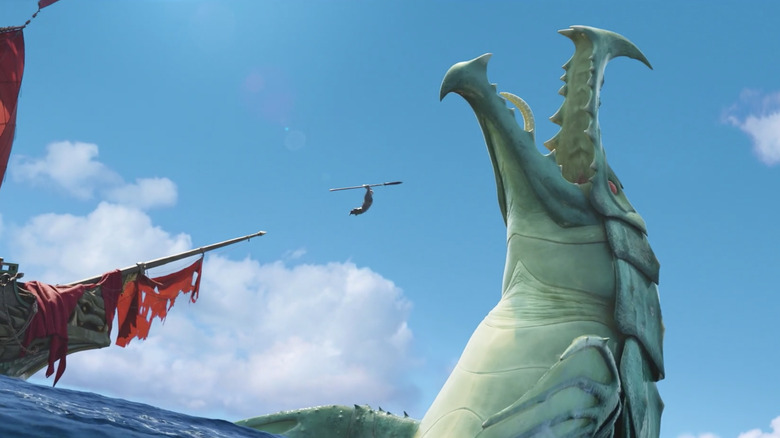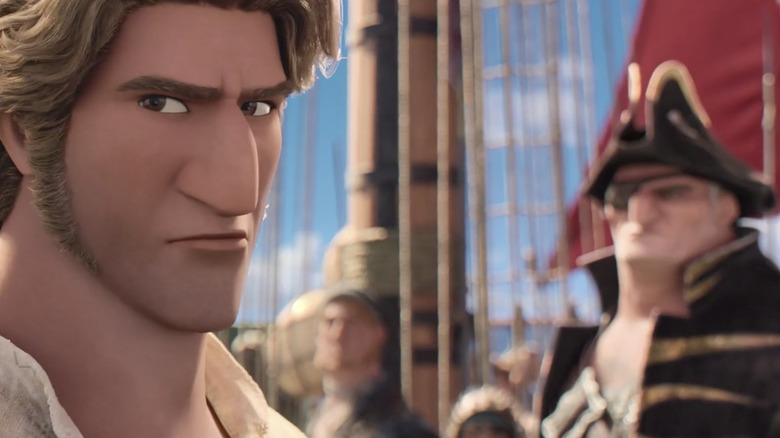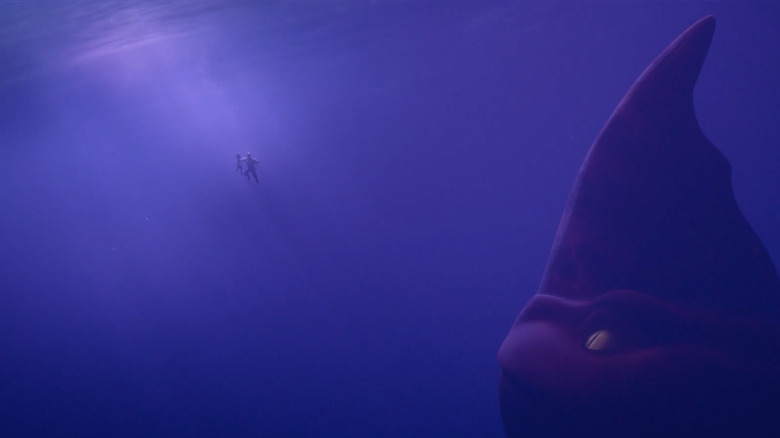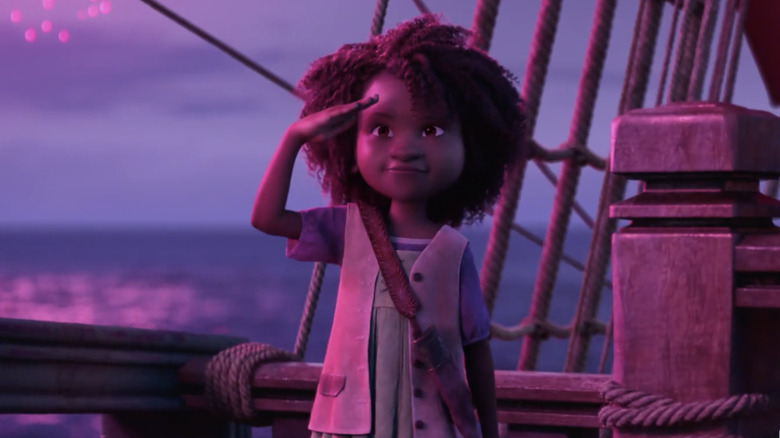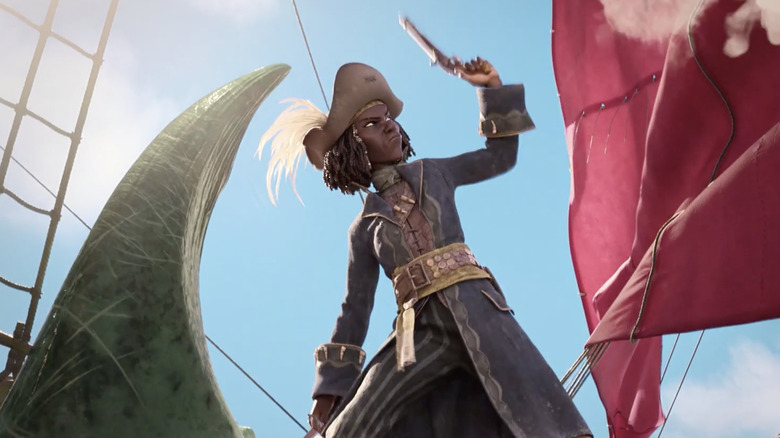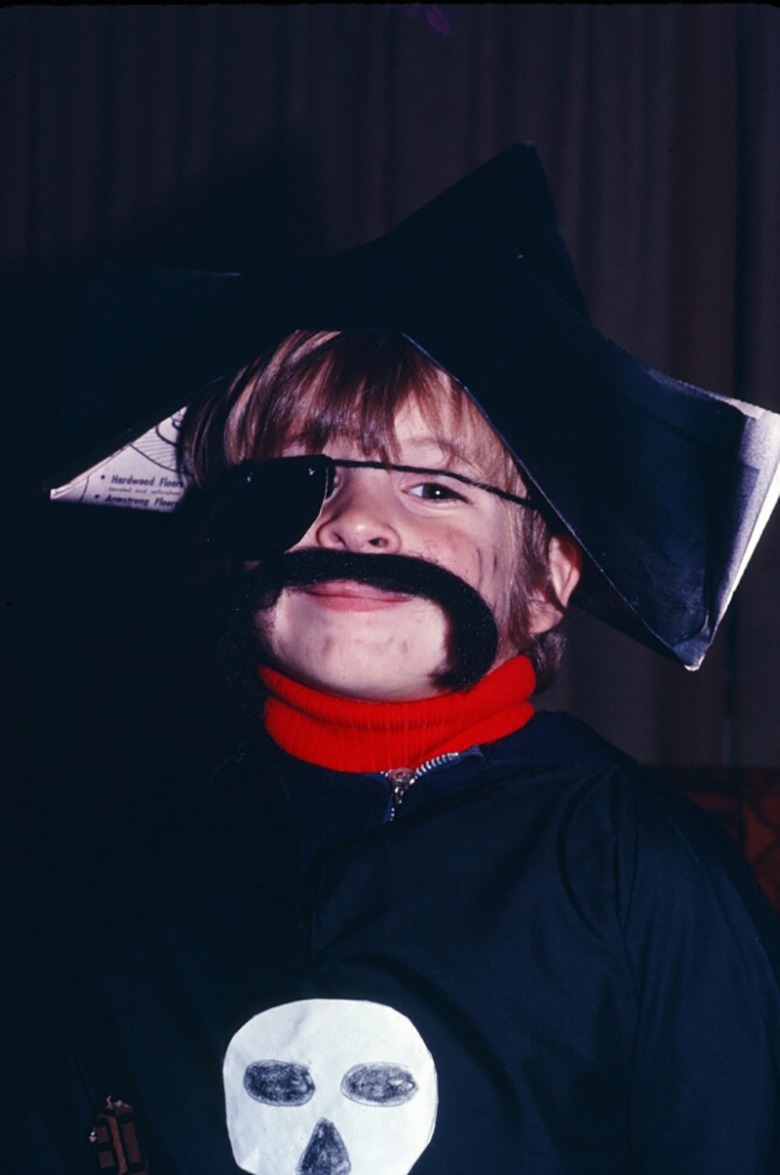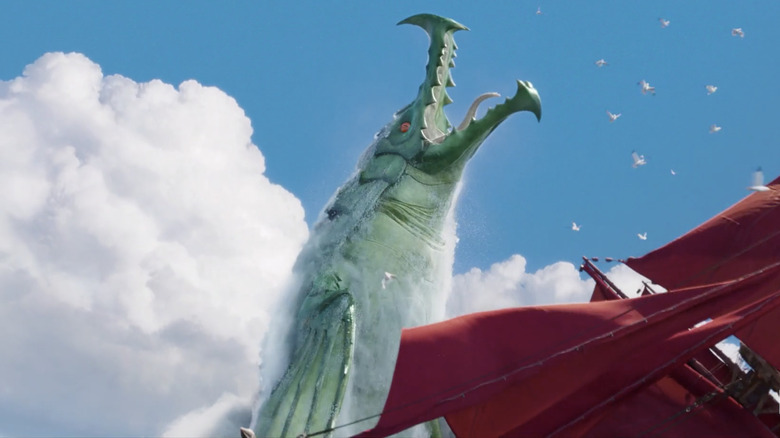The Sea Beast Director Chris Williams Wants You To Remember Why We Love Gigantic Monster Movies [Interview]
Netflix has been home to some incredible animated feature films as of late, including "Klaus," "Vivo," "Over the Moon," and "The Mitchells vs. The Machines." In their latest, wholly original production, Disney alum Chris Williams takes audiences on a nautical adventure sailing the seas and battling larger-than-life monsters. The co-director of "Bolt," "Big Hero 6," and "Moana" is setting sail on "The Sea Beast," due out on Netflix this summer, on July 8, 2022. The film is about a legendary sea monster hunter named Jacob Holland (Karl Urban) who, during his most dangerous hunting expedition, discovers a young girl with monster hunting dreams of her own has stowed away on his ship. I was fortunate enough to sit down with Chris Williams to talk about his monster kid roots, why audiences love stories about the open sea, and what it's like leaving the Disney institution and starting anew at Netflix.
Chris Williams got his start making stop motion home movies
You mentioned being inspired by a lot of the genre blockbusters of the eighties. So I'm curious what drew you towards animation instead of becoming the next Carpenter or Spielberg?
That's funny, I've never really considered that. I suppose it was probably a product of the fact that when I was a kid, I loved to draw, and that quickly turned into comic strips and storytelling — visual storytelling. And then my dad bought a little camera and I started making stop motion films as a kid. My first film was a little documentary about little plastic dinosaurs and they would kind of walk around, and the climax was a Tyrannosaurus rex and a Triceratops battling. There was a lot of ketchup blood and all that, and I was just hooked with this idea of this illusion of movement. So, it probably all goes back to that, just sort of having the tools at my disposal and getting really fascinated by it. My mom was the one who was really keen on trying to figure out what to do with me and how it could actually become a career because the animation industry back then isn't what it is today.
Right.
That was a long time ago and when people thought of animation, they thought about Saturday morning cartoons mostly, and my mom was at a bit of a loss about what to do with me. She suggested that I do it, and right around then there was this incredible explosion in the animation industry and it only continues to grow. I was very fortunate with my timing.
King Kong is the ultimate monster movie
You mentioned loving the sea monster designs of mapmakers, but I'm also curious as somebody who likes Harryhausen movies, what sort of movie monsters also brought you inspiration?
Ha, well, I'm probably not unique in my sort of love for things like "King Kong," and "Godzilla." Those are the ones that I saw as a kid and really imprinted on me, and I was the right age at the right time for "Clash of the Titans" and the Kraken, this huge climactic monster that they had to face. That really sort of struck a chord with me. So, I'm a product of my era.
Kaiju are just the bee's knees. You can't ever go wrong with a giant monster.
Yeah! There's a challenge with giant monster movies, especially if you want them to be an actual sort of character because the scale is so different. If they're going to relate to a human, [there are] all these issues of how to portray that. We knew that would be one of the big challenges with our movie. We kept returning to "King Kong" as a great example, where they managed to make King Kong awesome and big, and we had these massive set pieces, but there were still these relationships and still a connection, an emotional connection, with the monster. So we could always look to that one as an example of a successful monster movie.
On the shift from Disney to Netflix
You have a ridiculously impressive legacy with Disney, so what was the adjustment like going from a place where you kind of know everybody at that point, to then jumping over to Netflix, and working with a lot of newer people.
It's really a double-edged sword–and it's the reason to stay and the reason to leave. I still have so many great friends at Disney and I left on really good terms, but people understood what my motivations were. I really just needed to throw myself into something new almost for its own sake. I think there's just something after 25 years, and what felt like my only adult job, the idea of throwing myself into a more uncomfortable, unfamiliar situation just felt like an interesting experiment to see what would come out of that creatively. And it is a very different experience, to go from Disney, which feels like this eternal institution that was there when I was born and grew up with. When you join, you become sort of one of the caretakers of legacy, and then you kind of pass it off.
And then Netflix was a thing that was brand new and dynamic and moving quickly and taking shape, and it felt almost like the opposite. I felt like as much as I felt I was always treated well and had a good experience at Disney, I think I just wanted a very different experience. The sad thing was leaving behind great friends that I was working with, but the great thing was meeting all these incredible new people that were coming from all sorts of different experiences–2D, 3D, TV sometimes, people who worked all different ways and coming together, and then quickly sort of getting comfortable with each other and figuring out how we make a movie together. And there was something really thrilling in that, being part of something that was just taking shape. So, it couldn't be more different. I would say both, for me, were great experiences.
Williams is a lifelong fan of stories at sea
Sailing, pirates, and swashbuckling seem to be having a resurgence right now. We've got "Black Sails," "Lost Pirate Kingdom," "Our Flag Means Death," and even, "Santiago of the Seas" if we're going to go for kid properties. What do you think it is about this sort of world that gets audiences excited and interested?
I know what it is at least partially for me. There's something about this idea of sailing off in the unknown. There's always this suggestion of the horizon and what's beyond it, and it could be anything. That idea of an adventure out at sea, feeling like you're heading into almost the idea of mystery itself. There's something mythic about it, and there's just something that lends itself to stories about being on a ship, being out where humans don't really belong, but we've created this little citadel where we can be safe.
It's inherently interesting from a story point of view, because you're vulnerable and you have to work together to survive this ordeal. It kind of pressurizes the relationships a little bit and just always lends itself to really exciting and dangerous episodes. I don't know about everybody, but I think a lot of people have this feeling or this affinity or these sort of romantic notions about being out in the open sea.
Williams wants audiences to feel like he did watching King Kong
And your movie does that! How are you hoping people are going to feel after having watched The Sea Beast?
Boy, that's a good question, because I know that so much of it was motivated by me wanting to make a movie that would make people feel the way I felt when I watched "King Kong" or "Raiders of the Lost Ark." I think for me, one version of the answer to that question is, I wanted to feel like something that felt new and exciting in the fact that it was unique, but also acknowledged its influences–that it sort of feels like a version of a throwback adventure story, something that felt hopefully timeless and new at the same time.
There was something specific for me when I watched "King Kong" and especially when I watched "Raiders," where I was at a certain age, where I had the things that I loved, and I was trying to figure out the world that I lived in. I watched "Raiders" and I remember of course loving it, but also there was this conversation I was having with myself where I understood on some level that adults made this thing and they obviously love the things that I love. There was something strangely reassuring about that, that I could grow up and still care about the things that I care about now, and maybe even pursue that as a career or at least a passion. There's something about that experience that has really stuck with me. Of course, it's dangerous to compare your movie to some of the greatest classics of all time, but hopefully, it can have a similar effect on people who watch it now.
(This interview has been edited for length and clarity.)
